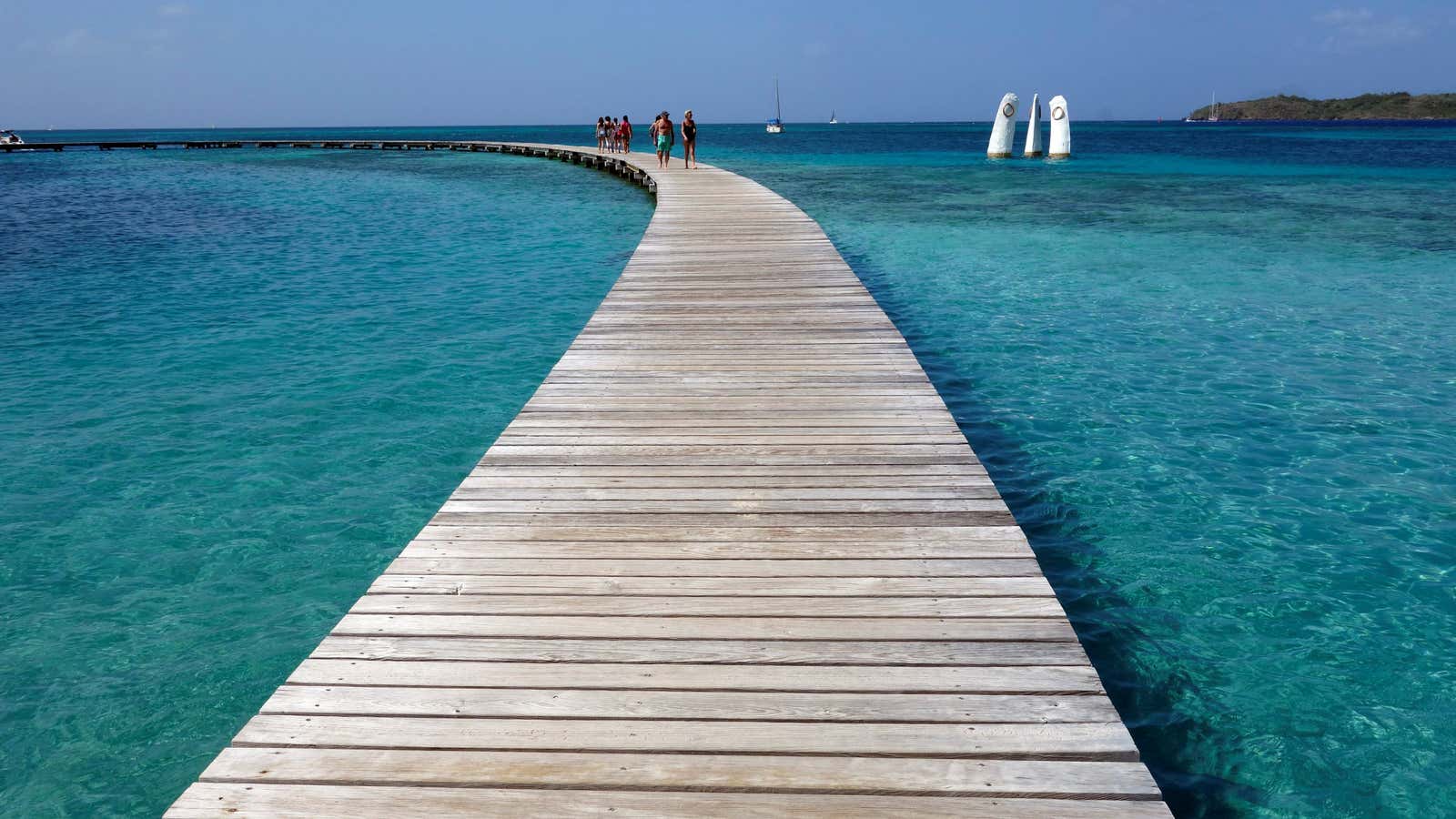In the digital era, a lot of us feel busier than our parents and grandparents ever were. But analyses of the way we actually use our time suggest that we’re mistaken. On the whole, we’re not doing any more work than previous generations. We don’t do any more household chores, either. So why do we feel so much busier?
It’s often suggested that the problem lies with the 24/7 modern work cycle, with email and frantic texts from colleagues eating into our leisure time. There’s no doubt that technology has had an effect on us—but work has always been demanding. What has transformed beyond recognition are not the psychological pressures we face at work, but those that we bring upon ourselves when we’re supposedly trying to relax.
We’re multi-tasking for pleasure
I’m no big fan of TV. As psychologist Martin Seligman writes in his book Authentic Happiness, research shows that the average psychological state of Americans watching TV is “mildly depressed.” Even when you’re tuning into The Americans or other prestige shows, watching television is still a passive activity. That means it’s less likely to get us into the state of “flow”—a condition in which we are intensely, pleasurably focused on a given activity, which helps us feel more fulfilled and happy in our everyday lives.
But now the majority of us use multiple screens while we watch TV—which means we are finding ways to turn a dull and depressing experience into a demanding one. That’s a bad idea: A 2015 study of 320 Chinese teenagers found that media multi-tasking has a negative relationship with psychological well-being, while a 2012 study found that it was associated with both depression and anxiety. In addition, the effort it takes to switch our attention back and forth between multiple screens can result in mental overload.
So when you do want to watch TV, I recommend focusing on the show in front of you—you’ll enjoy it more and feel truly more relaxed. If the program is too dull to keep your full attention, do something else!
We’re resting too much
So what’s the best way to recover from the workday? I recommend not resting at all.
Most of us are rubbish at using our leisure time. We think of it as an opportunity to chill out and do nothing, typically from the comfort of our couches at home. Yet the older view of leisure, from ancient Greeks to classical Japan, saw leisure as effortful, and very distinct from rest.
In this sense, there are two elements to leisure. The first is that you undertake leisure for its own sake; going to the gym to lose weight doesn’t count. Aristotle would call that “mechanical”activity—done as a means to an end, rather than an end in itself.
The second is that leisure is active, requiring us to use our full attention and skill; as Emmanuel Kant would say, it is “purposiveness without purpose.” A great example of leisure comes from classical Japan, wherein everyday activities, like making a cup of tea, were transformed acts of leisure; an intricate dance of skill, beauty and immersion.
There is a simple rule of thumb for leisure: the more you put into it, the more you get out of it. Engaging hobbies like rock climbing or playing the flute take effort. But they attract our full attention because we find them interesting in themselves, and because we want to improve at them.
As we immerse ourselves in real leisure, we take a break from busyness, and all thoughts of work and demands are abandoned. Engaging in challenging hobbies recharges us, and reduces our overall level of exhaustion. And it is through leisure—not rest—that we experience flow.
Unfortunately, given the choice between an interesting and challenging activity or a dull and easy one, more often than not, we choose dull and easy. And so we really never recover from work.
We’re too efficient
This isn’t to say we should endlessly challenge and push ourselves. In fact, our obsession with productivity has invaded our relaxation too. Driven by fear of missing out and a desire to stay over-stimulated, we pack every spare moment with text messages, news articles, and social-media posts, and cram our weekend schedules with brunches, drinks, movies, game nights, and dinners. In effect, we are pushing ourselves to do ever more with our leisure time, and turning to scheduling apps to make ourselves feel better in control of our calendars.
We would do better to embrace inefficiency. One of the surest ways to increase our sense of control over our downtime is to savor the spaces when we’ve got nothing going on—lingering over a beautiful view, taking a quiet stroll after dinner, or sipping a cup of coffee and doing a crossword puzzle for a couple hours on Sunday morning. The best way to gain a feeling of time affluence is to give your time away. When we are generous, or even careless, with our time, we give the hours of our day breathing room. We create the feeling that we have time to spare.
Great relaxation is not automatic
In a culture obsessed with achievement and stimulation, we’ve lost sight of what leisure is supposed to do for us. It’s time to regain the lost art of leisure and savor it. We would do well to remember the advice of Ralph Waldo Emerson: “Guard well your spare moments,” he wrote. “They are like uncut diamonds. Discard them and their value will never be known. Improve them and they will become the brightest gems in a useful life.”
